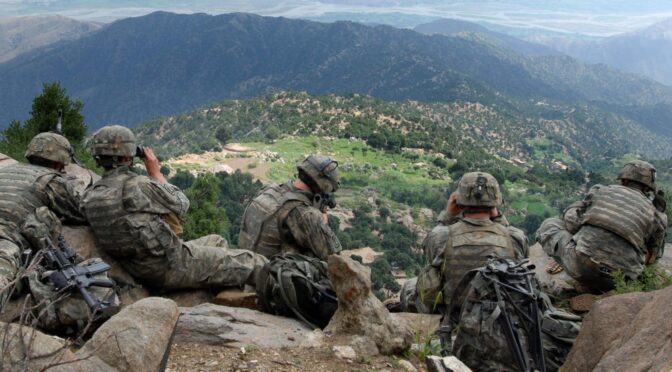Another terrible landmark in the global war on terror. What have the deaths of 2,000 American troops in Afghanistan achieved? Throughout the years that I worked at the centre of the British intelligence machinery, a vast array of reliable secret reporting and communications intercept clearly showed that al-Qaeda was hell-bent on another attack of 9/11 proportions. They have failed even to come close.
To a very significant extent this failure is down to the work of international forces in Afghanistan. All too often, at the cost of their own lives, these international forces in Afghanistan have prevented al-Qaeda from re-establishing their base, which intelligence showed to be one of their critical objectives from 2002 onwards.

Forces in Afghanistan have played a major role, too, in enabling wave after wave of highly effective drone strikes that have thrown al-Qaeda not just on to the defensive in Pakistan, but into survival mode.
But despite President Obama’s 30,000-strong troop surge, they have not defeated the Taleban, who were and remain allies and supporters of al-Qaeda.
In this type of counter insurgency, conflict military forces can only buy time during the search for political solutions. Although an elusive and ultimately unachievable accommodation with the Taleban has been pursued, the most important political objectives should have been ensuring a viable government in Kabul and undermining the
Pakistani support that has kept the insurgency strong. Neither is even in prospect.
With the American President weary of a conflict that he has been unable to win or resolve, and an election at the forefront of his mind, the war will have to continue by other means.
That does not mean the Afghan security forces taking on the fight alone — their fragility is exemplified by the death of the 2,000th American at the hands of one of their own.
Large swaths of Afghanistan — especially in the south and the east — will most likely again fall to the brutal lash of the Taleban after international forces pull out in 2014. Al-Qaeda will be hard on their heels. As in Pakistan and Yemen, any failure relentlessly to hunt down these international jihadists, who remain intent on mass murder in the West, will have to be spearheaded by US intelligence, special forces, airpower and drone strikes.
Any failure relentlessly to hunt them down would be a betrayal of the 2,000 brave American servicemen who sacrificed everything to keep their country — and the Western world — safe from terrorism.
Published in The Times, 1 October 2012. © Richard Kemp

